If you were to see our work schedules, it looks like we only work 2.5 hours per day, either one rehearsal or one concert. Sometimes we have two rehearsals in a day, or a rehearsal and a concert, for a total of 5 hours. In a Masterworks concert week, like this one, we are together every evening and spend 17.5 hours in rehearsals and concerts at the hall. Part time, right?
In reality, we’ve already spent many hours on our own time maintaining our skills and preparing our music for this specific program. Some players, like oboists, clarinetists, and bassoonists, may spend many more hours making reeds. They have to do this for every concert.
By the first rehearsal we are performance ready on our individual parts. We use rehearsals to refine the group sound and bring the music director’s vision to life - work that is not possible to do at a professional level if we haven’t done our homework.
These are some of the ways we prepare for a concert:
Practice
“I generally practice between 2-3 hours a day outside of rehearsal time - that’s somewhere between 14 and 21 hours each week. Some of this is time spent on a specific work I’m prepping for a performance but a lot of it is aimed at maintaining and improving myself as a horn player and musician…Much like an athlete, warming up for the day is essential for healthy brass playing. Playing a rehearsal cold is a great way to sound bad and injure yourself.”
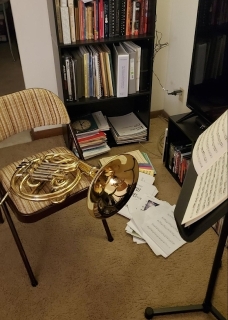
Score study
“Preparation doesn’t mean just learning your own part. Without knowing everyone else’s lines there’s no way to know how your own part fits in, so for each concert program I like to spend at least 3-5 hours of preparation time just in score study (and more than that if the program includes something very complex like a Mahler Symphony or a Strauss Tone Poem).”
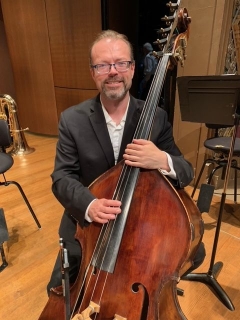
Listening
Listening puts our individual parts into context, helping us to understand the performance traditions of the repertoire and how we fit into the music as a whole.
“I listen to music so I know what the most important parts are, and thus who to listen to. I don’t have to worry so much about counting because I know exactly what is coming.”
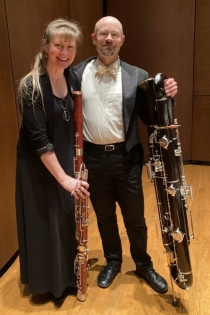
Reed-making
“In addition to listening to recordings and practicing the music before we start rehearsals, as Second Oboe and English Horn player, I spend many hours creating and adjusting double reeds for two different instruments. Oboe and English horn reeds are different lengths and widths and require unique scraping for each to sound its best.”
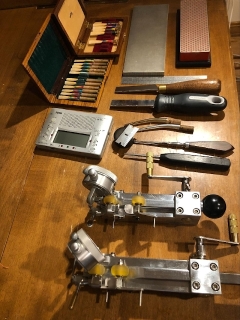
Set-up
Most musicians show up 15-30 minutes early to warm up for rehearsals and concerts. For some, like percussion and harp, arriving even earlier is mandatory to be ready to play.
“It takes 1 hour for hauling, and 1-2 hours for set-up, depending on the particular series, and then spend another 30 minutes to an hour after the concert taking everything apart and packing it up. Sometimes a diagram is drawn up, because the percussion set-up is so complicated.”
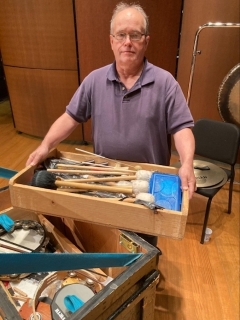
All of this is necessary to perform at a professional level. In our 2022 contract, we won compensation for percussionists for the time they spend setting up for work.
None of our other preparation is paid.
Stay tuned for future posts about us and our work! In the meantime, get to know us by reading our newsletter archive here.